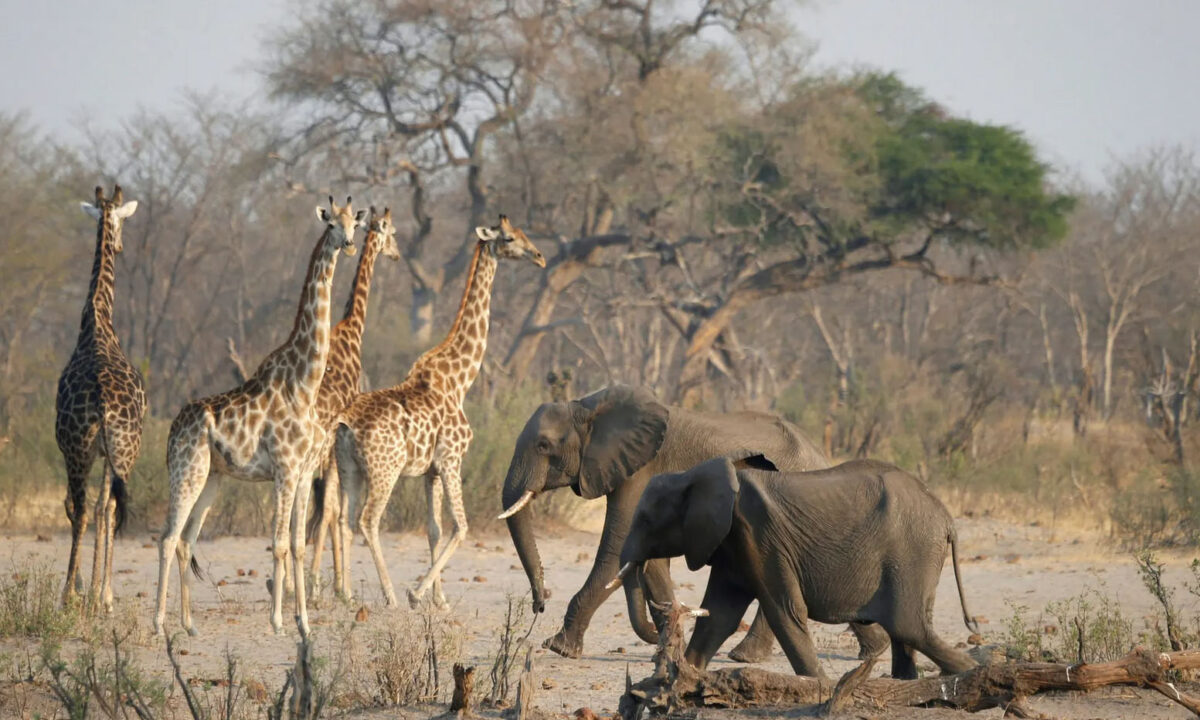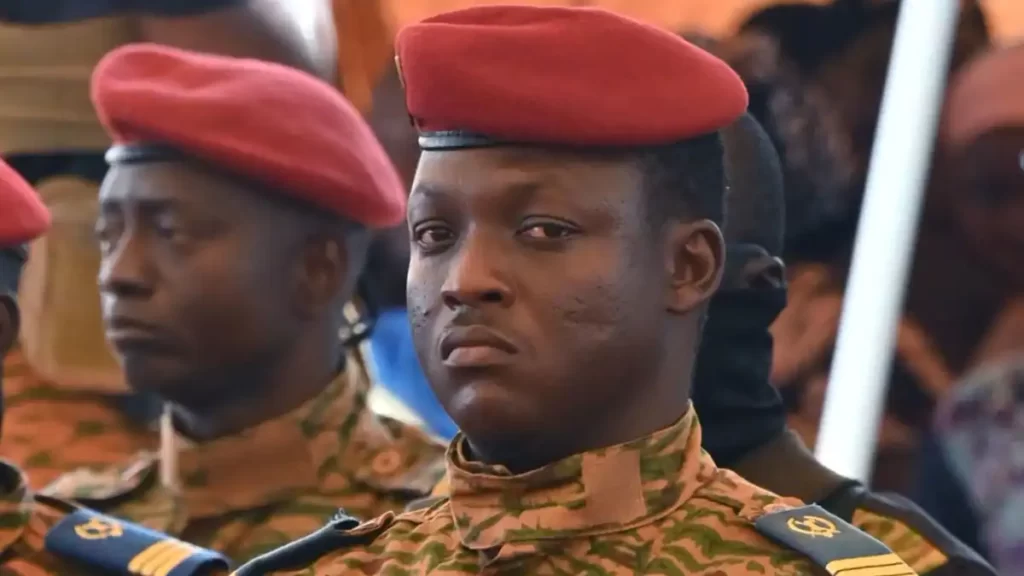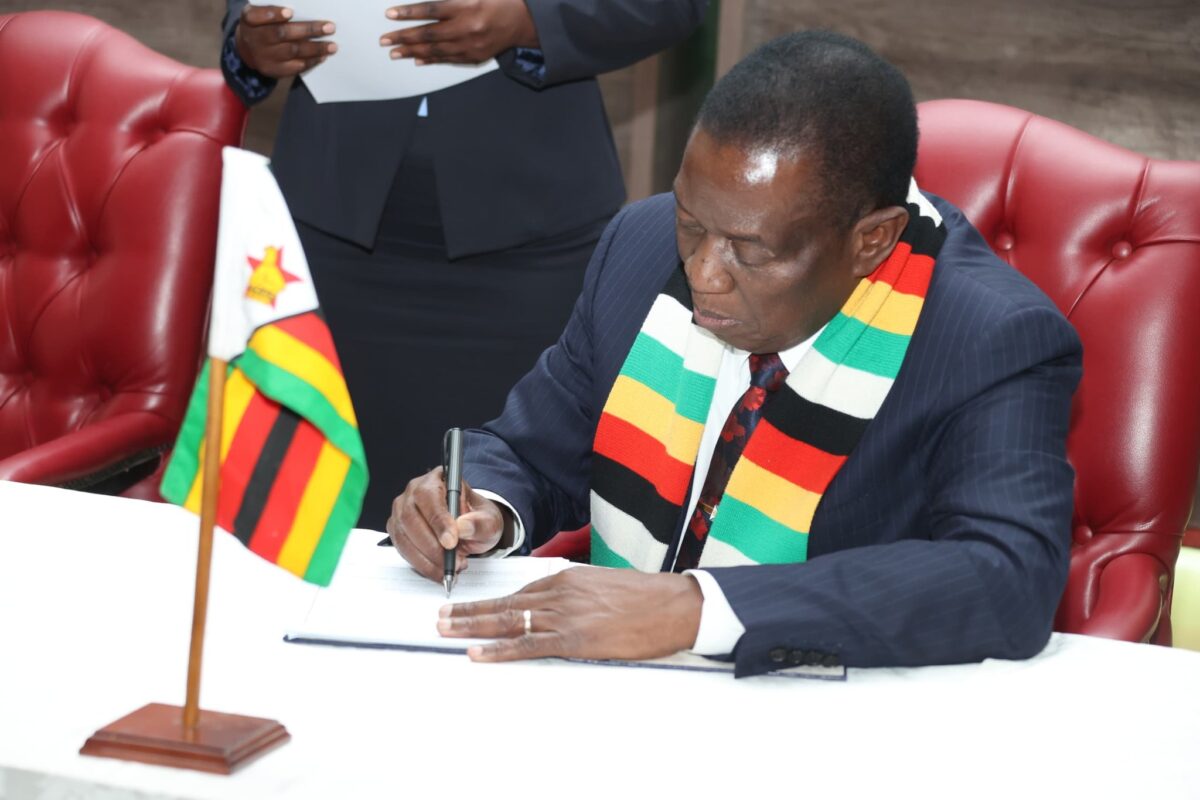HARARE – A conservation pressure group has gone to court to challenge the granting of coal mining concessions to a Chinese company inside the Hwange National Park by President Emmerson Mnangagwa.
The Zimbabwe Environmental Law Association said in an urgent application at the Harare High Court that any type of mining inside the 14,651 square-kilometer nature reserve “poses an acute risk of irreversible ecological degradation.”
Police tried to detain several Chinese miners setting up camp inside the park, only to be told the miners had permits allowing them to explore for coal.
“What we have is a perception that mining takes precedence over anything else,” said Nyaradzo Mutonhori, from the Zimbabwe Environmental Law Association, which is attempting to halt the development.
Hwange National Park is home to 10 percent of Africa’s remaining wild elephants.
The Bhejane Trust, which works with Zimbabwe’s National Parks and Wildlife Management Authority, says concessions to explore for coal within the parks have been given to two Chinese firms already working in Zimbabwe.
In a document released last week, the Bhejane Trust named the Chinese companies as Afrochine Energy and the Zimbabwe Zhongxin Coal Mining Group.
Trevor Lane, a veteran conservationist who runs the trust, says his monitoring teams intercepted the two firms’ workers conducting exploratory drilling in the area.
“We followed up on this and discovered the government has allocated two coal mining concessions in the middle of the Park,” he said. “It was a shocking discovery.”
The mining permits appeared to be ‘Special Grants’ which apparently can only be issued by the office of Zimbabwe’s president.
Last month Mnangagwa visited the offices of both Afrochine Energy and Zimbabwe Zhongxin Coal Mining Group in Hwange, about 65km from the park.
During the visit, he said that Zimbabwe intended to become an energy exporter. “We must see also that this area changes and responds to growth and modernisation,” he declared.
Beyond the perimeter of the park, which was founded in 1929, Chinese-owned open-cast mines have devastated the environment and led to levels of air pollution akin to those in China, conservationists said. There are regular incidents of conflict with workers who complain about low wages and poor working conditions.
Although China is regarded as the world’s biggest polluter, it has reduced expansion of its coal industry at home, while continuing to build hundreds of coal-fired power plants overseas.
Zimbabwe is already one of Africa’s biggest coal producers and its government is under increasing pressure to solve a power crisis that has left millions of its citizens in the dark and aggravated its economic chaos. About a third of Zimbabwe’s electricity is generated from coal-fired power plants.
Opposition leaders have accused Mnangagwa of “trashing a jewel” in allowing mining in Hwange as it looks increasingly reliant on moral and financial support from China.
As reports of human rights abuses attract growing international criticism, Zimbabwe’s “look east” policy, which has made China its biggest foreign direct investor, provides a lifeline.
In a statement on Monday, the ministry of environment, climate, tourism and hospitality said: “We take note of the ongoing discussions around the Hwange National Park and we assure the nation that the government will pronounce itself in the next few days.”
















